Greetings from San Antonio, Texas! I am so excited to be here for the 2016 MTNA National Conference from April 2-6. I will be sharing a few highlights over the next few days.
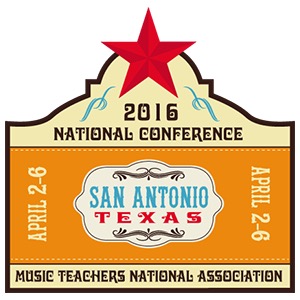
I’m staying with a couple of friends: Susan Hong and Amy Chapin (check out her brand new blog, Piano Pantry). Here is a photo of us at Fogo de Chao last night for dinner, enjoying Brazillian buffet. Yum!
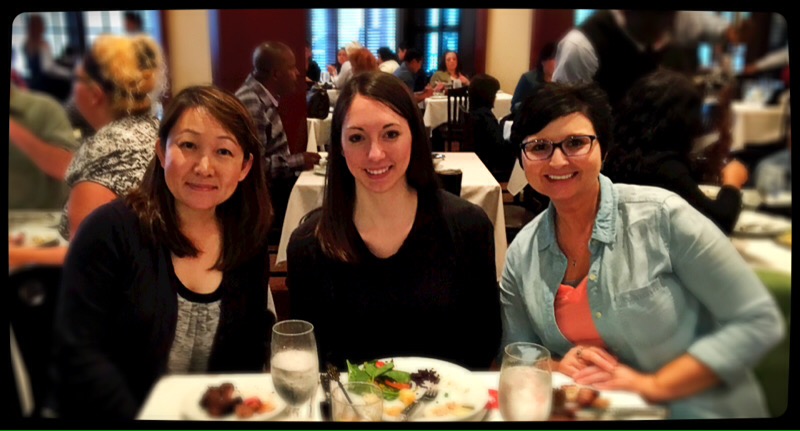
Saturday of the MTNA conference is always “Pedagogy Saturday” — an optional day (often my favorite day!) with a variety of tracks to choose from: Advanced Pianism, Musician Wellness, Music Learning Theory, Recreational Music Making, and Young Professionals. Below are notes from the sessions I attended.
8:00am Advanced Pianism Isn’t What It Used To Be, by Robert Duke and Robert Weirich.
In this introductory session, Dr. Weirich described an experience during his undergraduate studies to when his teacher would ask students to listen and copy. The teacher made them repeat it until they got it just so, instead of simply “telling” the student what to do. This is great and memorable teaching.
Dr. Duke (author of my favorite book on teaching, Intelligent Music Teaching) talked a bit about his work researching the way we learn, create memories, and develop skills. The way we teach often counters this research. We tend to over-help. We want to un-confuse our students — but the problem is that then they haven’t learned anything.
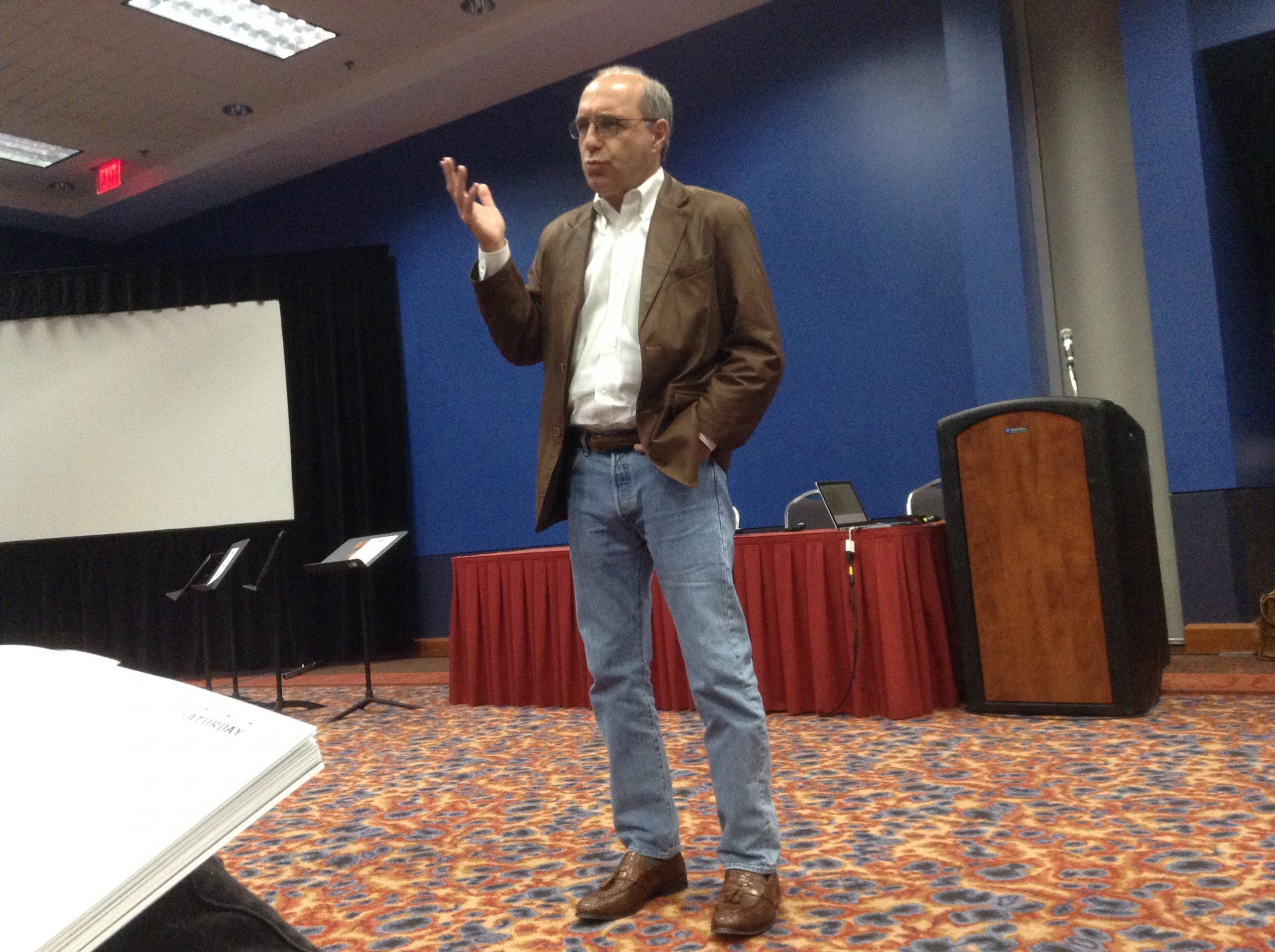
We can strategically create effective confusion for learning purposes. Productive mistake-making is the machinery for how learning happens. Our focus of attention should be on what we are expressing to another human being, because then our we have the potential for more joy. If our goal is only not to make mistakes in a performance, then the greatest feeling we achieve afterwards is relief. But when our goal is communication and expression, we have the potential for experiencing joy.
The goal isn’t to know stuff (especially today in the age of the iPhone and Google); the goal is to be able to DO things with the stuff we know. For this, we need to create opportunities for muddling and messy learning. As teachers, we need to be flexible, too. We can model and instill an attitude of experimentation and flexibility. Otherwise, it is only about correctness and relief. We can create small assignment challenges for students to grapple with. For example, “How can I make the inner voice here stand out?”
9:15am Getting Started On The Right Foot: Establishing A Strong Foundation, by Fay Adams, R. Curtis Bristol, and Michelle Conda.
Michelle Conda led the discussion with prepared questions, and Curtis Bristol summarized and wrapped up the session. The first question the panel discussed was: What do we do at the first piano lesson to make students excited to come back for the second lesson? Fay Adams responded: Make eye contact, show that you are interested in the student. Go slowly in everything new that you introduce. Teach a piece by rote that they can recognize and play at home. Use manipulative, apps, and get them off the bench to engage them. Take a picture of the new student and post it on the studio fb page.
Dr. Conda addressed the same question from the perspective of teaching adults. The first lesson for adult students is about getting to know the person and asking them what their goals are. Adult students come with baggage. 🙂 Take the time to develop confidence and trust.

Another great question the panel discussed was: What tricks do you use to keep students motivated? Fay uses short-term extrinsic motivators (such as incentive programs that develop good habits) that lead to intrinsic motivation. Always be positive and encouraging. Build community in your studio. Keep a list of favorite pieces.
Michelle added that adult students like stickers too. 😉 Organize adult piano gatherings. Create good recordings of their pieces that they can share. Find amateur music clubs for them. When they seem to lose motivation, ask them what is going on.
What mistakes have you made in the past as a teacher? Fay said: I have refused to teach music other than serious classical repertoire. I have assigned too advanced levels of repertoire. I have assigned new pieces without going through them first with the student. We learn how to become better teachers through our mistakes.
Michelle said: Be generous about repertoire. Adults should be allowed to learn any repertoire they prefer. Life is too short to learn repertoire you don’t like. The minute we force students to do things, we lose them. The minute we stop listening to the student, we run into trouble.
10:30am If We Learn Like THAT, Why Do We Teach Like This? By Robert Duke.
Dr. Duke began this session by making the statement that there is a disparity between how we know the brain makes memories/learns and how we generally teach.
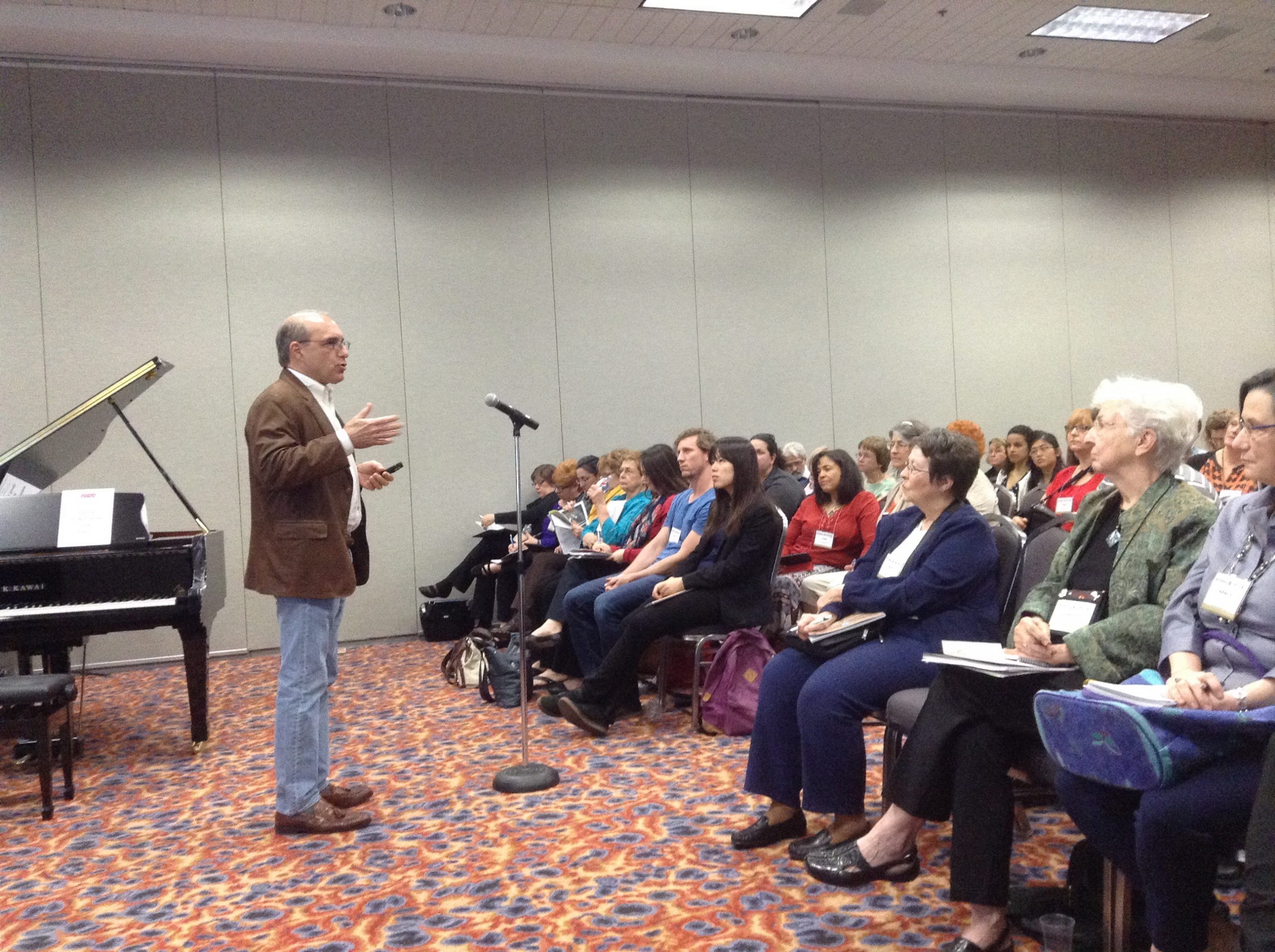
Dr. Duke then played a beautiful recording of a Schubert song for us to listen to and enjoy. We must make a point to spend our teaching days in the presence of great writing, stunning visuals, beautiful music, every day. Do we take the time to marvel at examples of art, or do we only analyze it with the student?
Dr. Duke next showed a video of a young boy singing and playing Ukele. The kid’s joy was clearly evident! We could adjudicate the performance, but we can all see that the kid understands what music is for: conveying something to other humans.
Our brains encode, store, and retrieve. For learning to occur, we need lots of practice retrieving. This won’t happen through listening to this lecture from our seats. Memorizing a poem, for example, happens through lots of retrieval practice: trying to recite it by memory and looking when we can’t remember a part.
The goal is expressive inflection, and all else comes from that (beautiful tone, intonation, note accuracy, rhythm precision, etc.). If we don’t have a clear idea about inflection, we should not touch the piano.
The best teachers have an allegiance to elegance and simplicity. The second thing is that they ensure that musical intentions match the actual outcome.
Expression is already naturally present in children. And somehow, it gets snuffed out.
The further away we focus on your body, the more effeciently we move. Example question for a student: “If you were trying to wake up your wake up your sleeping dog, how would you play this?” This is more effective than focusing primarily or firstly on the specifics — crescendo, articulation so marks, etc..
We enjoyed lunch with a group of San Antonio teachers at Maria Mia.
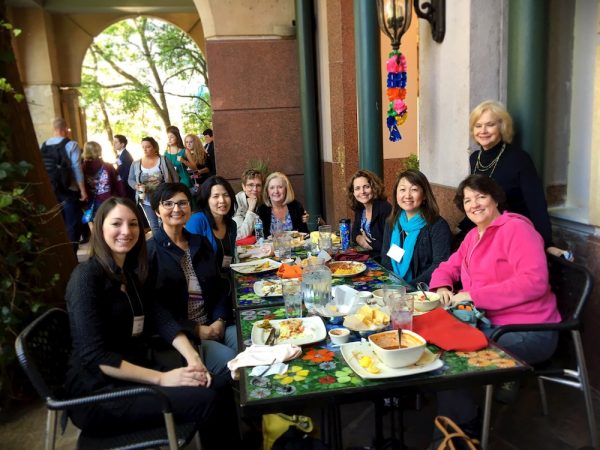
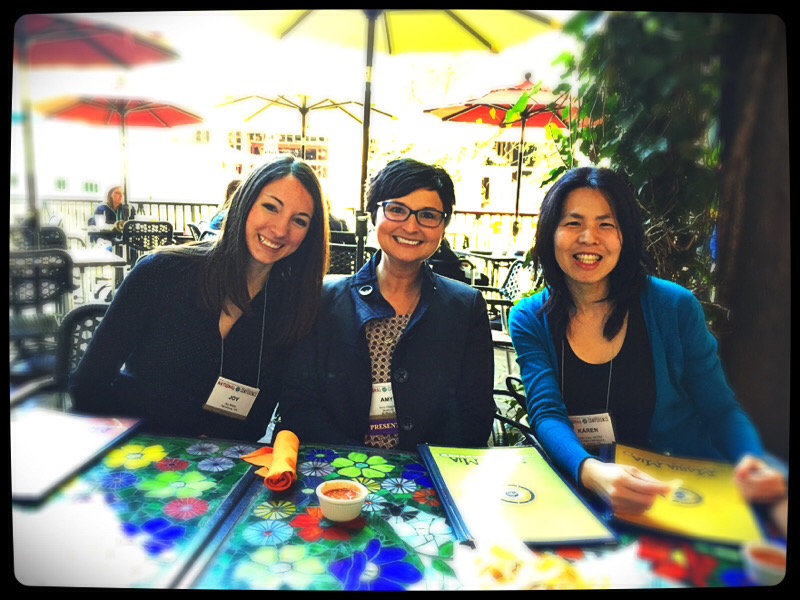
1:00pm Hear That? Integrating Theory And Ear Training Into Performance, by Hsing-ay Hsu.
Harmony is the spine of Western music. It makes it different from all other music cultures.
Commonly, there is a disconnect between knowing theory and ear training, and actually using it in music performance. Today, we will see that it is not only crucial, but practical. Our goal is a meaningful, cohesive performance.
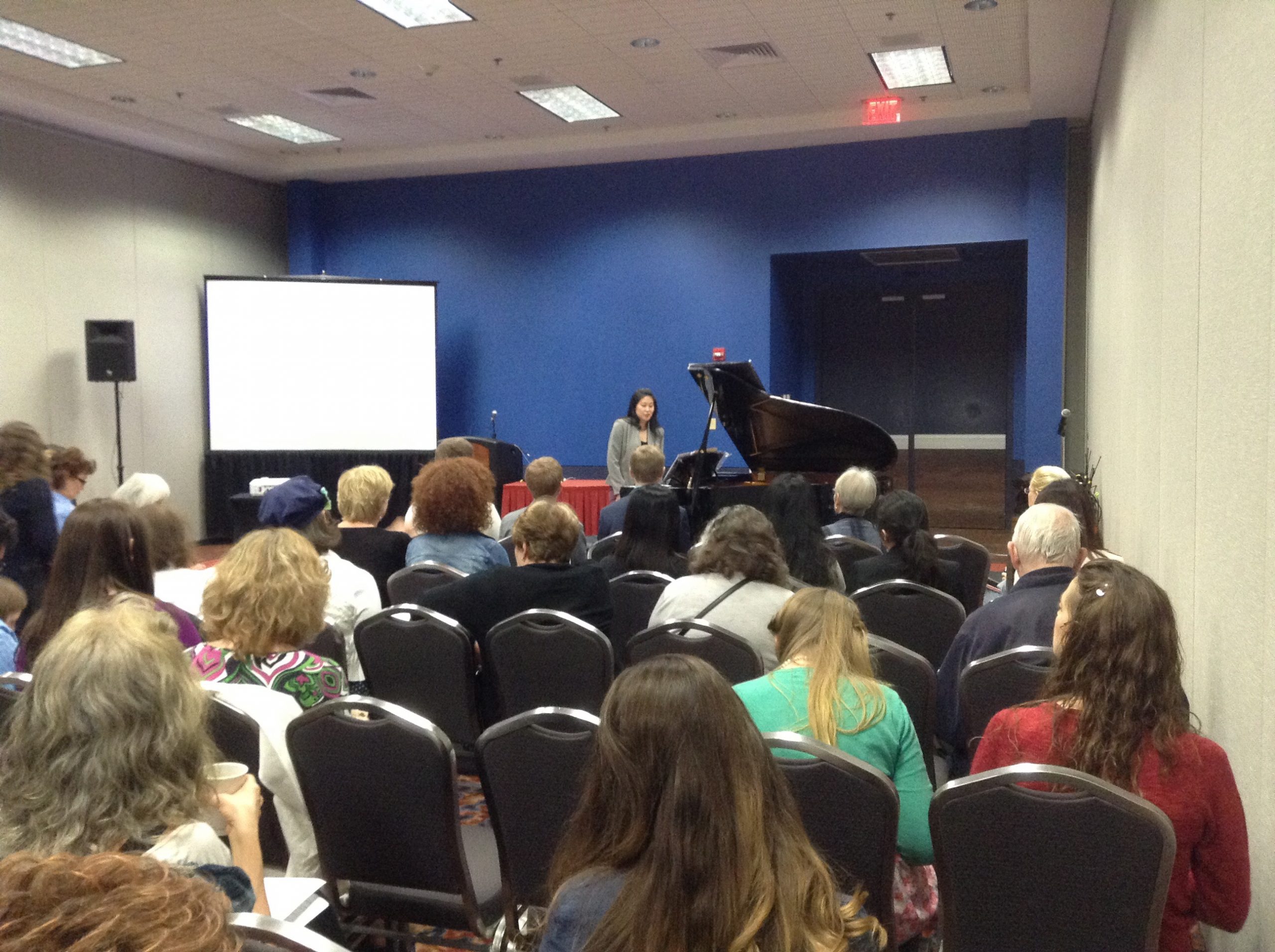
Ms. Hsu led us through associating certain facial expressions, adjectives, or colors in reaction to various chord qualities. The point is to attach personal meaning to each sound experience. Through those, grow the student’s vocabulary for talking about music.
Harmonic personalification: When we start combining two or more chords in progression, we can personify them for what character they are conveying; for example, confident, resolving, etc.. Leading tones should be emphasized to show the resolution to the tonic. Example of a prompt question to ask the student: “Which chord should be emphasized?”
Tension and release. This happens during phrases, and definitely in cadences. Ms. Hsu played an excerpt from the Bach Prelude in C and led us through inhaling and exhaling, slowly or quickly, and during the phrases. We ask: Where is the tension? In Brahms Rhapsody No. 2, Brahms avoids the tonic. The release occurs only after long, slow inhale.
Harmonic awareness guides us in our interpretation and figure out what the composer is conveying. It also, as a byproduct, helps secure our understanding and memory.
Ms. Hsu described what she calls “conscious listening.” There are four steps involved, towards the goal of engaging with the composer: Describe, focus, respond, choose performance elements (timing, breathing, etc.).
2:15pm Have You Forgotten What It’s Like to Be A Child? by Wendy Stevens
Wendy Stevens (of ComposeCreate.com) gave a fun and engaging session filled with ideas about how thinking like a child can help us be more effective as teachers.
1. Children have little sense of time or the future. Everything is about NOW. They need help learning how to plan and prioritize towards a performance, for example. They don’t naturally project the future or make appropriate judgements.
2. Industry vs. Inferiority. (See Eric Erikson’s Psychosocial Stages.) Competency – the sense that you are good at something. That involves avoiding overwhelm and breaking apart everything into small, manageable steps.
3. Children transition from kinesthetic learning slowly. How much do WE spend time talking at the student during your lessons? Do we invite them to weigh in? Do we get them moving and off the bench?
4. Play is the natural language of a child. Play is defined by Brené Brown as something so enjoyable that you lose your sense of time and want it to keep on going forever.”Men do not quite playing because they grow old; they grow old because they stop playing.” –Oliver Wendell Holmes.
Invitations into a child’s world are precious. And don’t be so serious all the time. 🙂 Use imagination and pretend.
5. Autonomy is extremely important. Autonomy is the freedom and ability to do or decide something for yourself. Give students choices. Allow ownership and responsibility. Do whatever they are excited about first.
3:30pm Repertoire Choice As Human Communication, by Brendan Kinsella, Louis Nagal, William Chapman Nyaho, and Ursula Oppens.
Brendan began the session with a little game: would you play this concert opportunity, and if so, what repertoire would you play?
Nyaho talked about expanding one’s repertoire through exploring the music of other cultures. He played an example of an awesome piece from his collection of books published Oxford University Press.
Ursula Oppens talked about expanding one’s repertoire through playing new works. This can be terrifying, but incredibly rewarding.
Louis Nagal summarized and added his own thoughts about repertoire choices at the end.
7:00pm Opening Session: Concert by Time for Three
MTNA president Rebecca Grooms Johnson gave a warm welcome and introduction to the 130th annual MTNA national conference. Then, it was time for the opening concert. Time for Three is a classically-trained string trio that performs new arrangements of pop music, familiar classical themes, and other genres. Their performance was engaging and invigorating!
Click here to read Day 2.


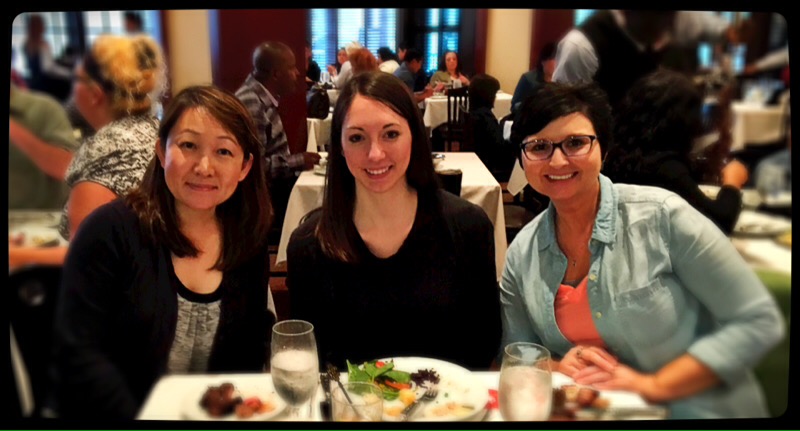
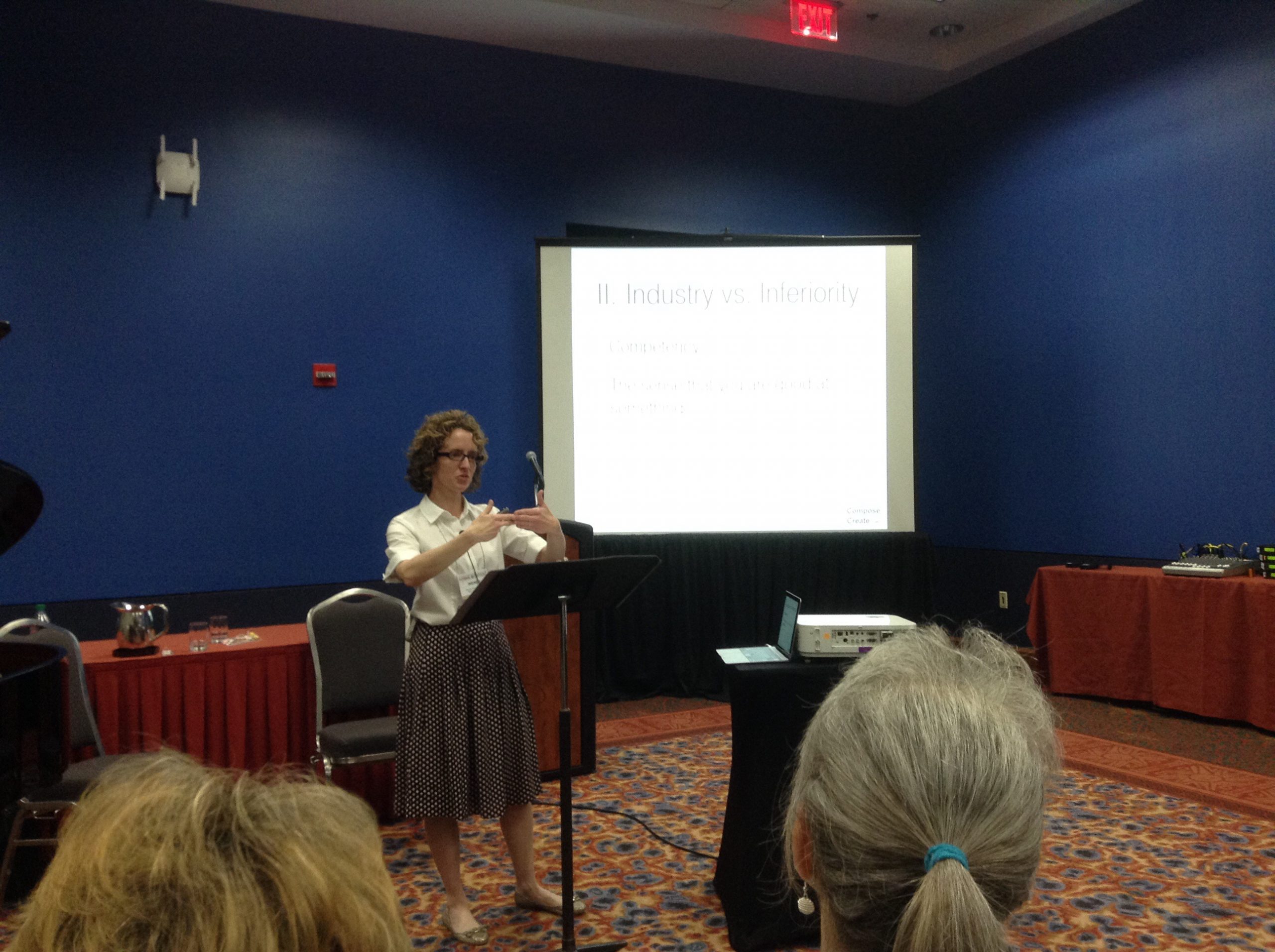
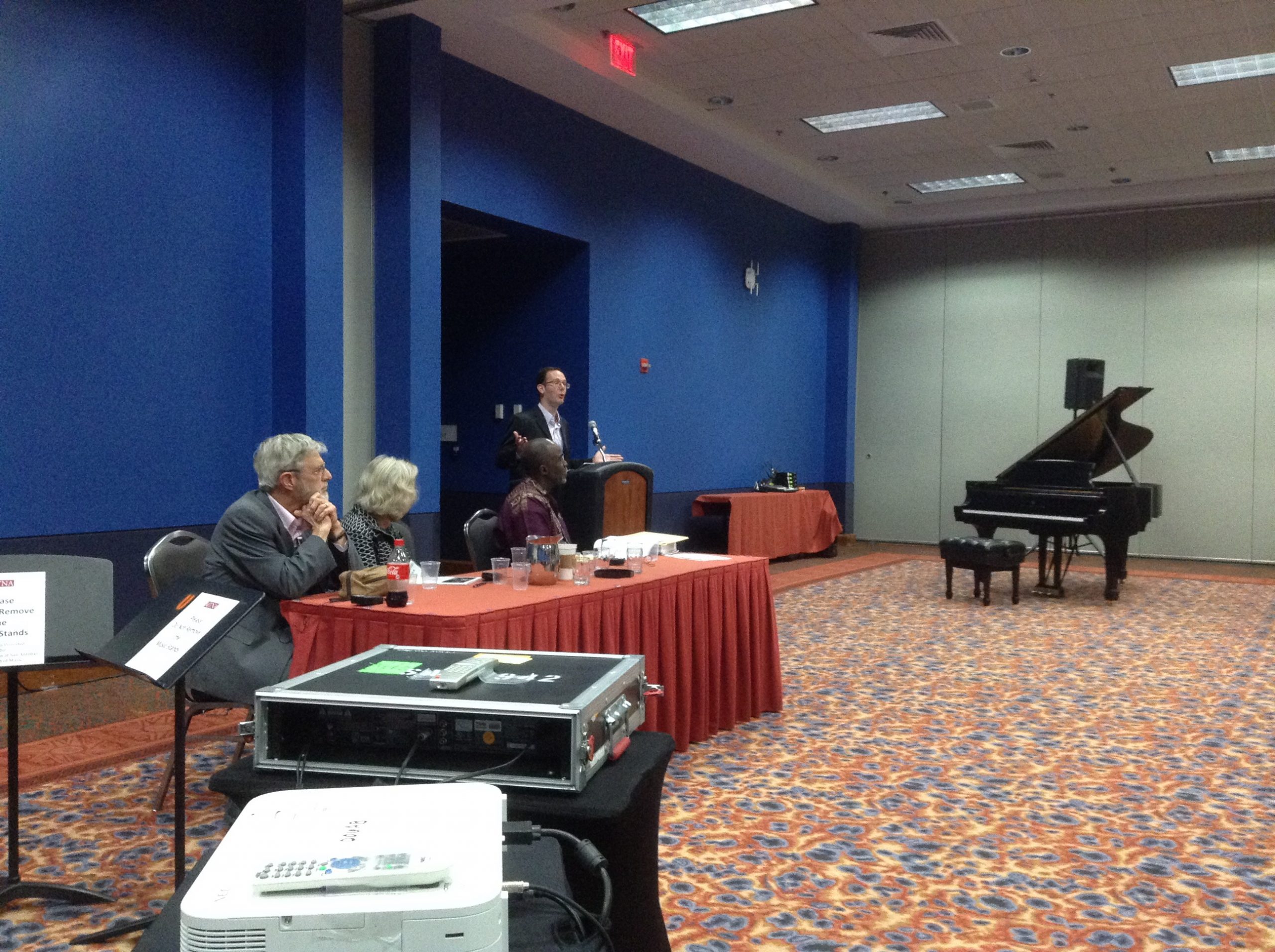
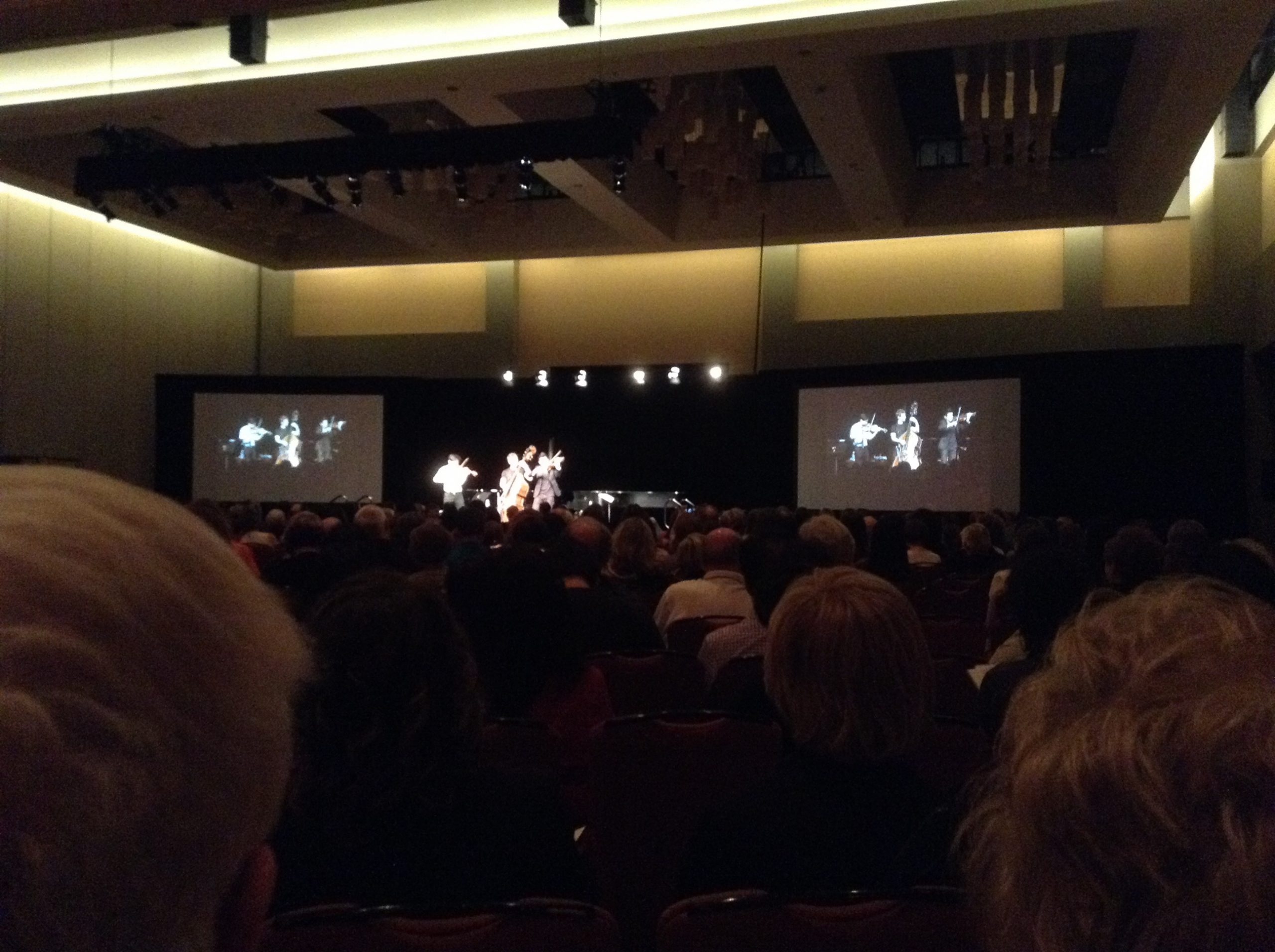
Thanks Joy for sharing everything you are learning at the Conference. You are just a wealth of helpful information, I have learned so much already just by reading what you have written about your time at the Conference.
Also, I love reading your blogs, and by the way, Congratulations on your 7 years of blogging.
Thanks for posting pictures of the Conference as well. I feel as though I have learned so much about being a better teacher, just by everything you’ve shared.
I used many of the apps that you have recommended with great success I am always on the lookout for anything that will make my students enjoy their lessons a bit more. I am still in the process of growing my piano teaching business, so I appreciate you sharing your years of experience.
Enjoy the rest of your time in Texas, and keep posting!
Thank you so much for your lovely comment, Yolanda! It’s wonderful to have your feedback. Best wishes!
Thank you so much for posting these summaries! It is so nice to get a little taste of a conference that I cannot attend! I appreciate all your posts and feel enriched by what you share.
Hi Joy! Checking out your blog as promised! I starting at Duke’s 10:30, we apparently went to the same three consecutive classes lol! I ended up skipping the fourth to go unpack and relax. I’ve just begun my attempt to do all the things on my post convention checklist, and my how daunting this is! Glad I could stop by though! Duke’s class on the brain was my favorite class of the entire convention! He is such an amazing speaker! Thank you for getting me in touch with Susan, she is a little further down my list lol! I am subscribing and will be commenting more in the future! It was a pleasure to meet you!
Joe! Thanks for checking out my blog!! Likewise, Robert Duke’s session was my favorite from the entire conference. It was so thought-provoking. Stay in touch – it was a pleasure meeting you at MTNA!
Enjoyed the info you have shared here. I hope to attend the 2017 conference!